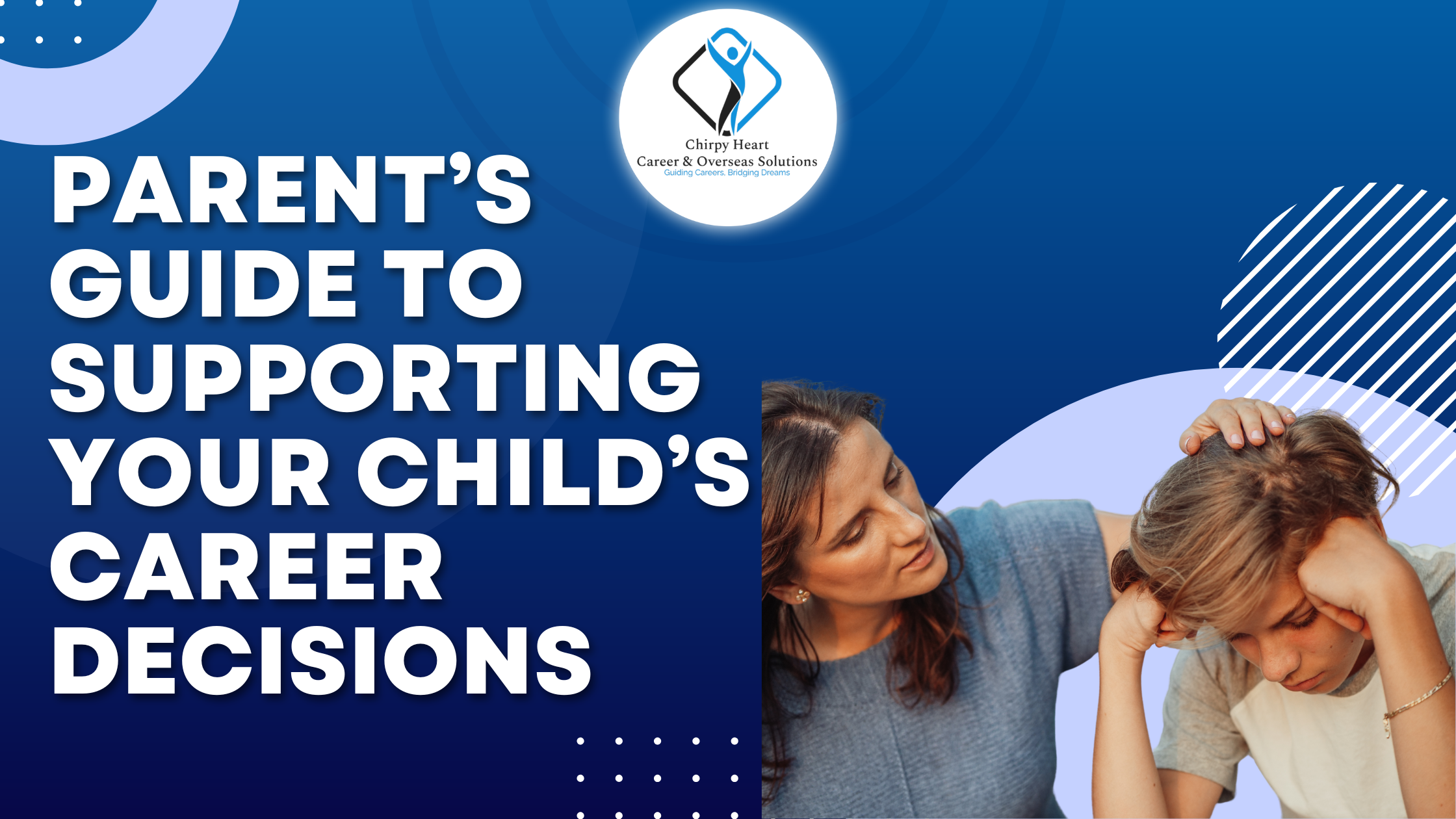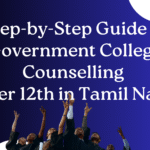Why Your Role Matters
The career decisions your child makes today will shape their future, and your guidance plays a pivotal role. According to a 2023 survey by the National Career Development Association (NCDA), 68% of students aged 16–18 reported feeling “overwhelmed” by career choices, while 74% of parents admitted to feeling unequipped to guide them effectively.
At Chirpy Heart Career & Overseas Solutions, we’ve guided over 700 students and parents across 5 countries using AI-powered assessments and global career trends. This guide offers practical insights to help parents support their children through this crucial journey.
As industries evolve rapidly—with 85 million jobs displaced and 97 million new roles created by 2025 (World Economic Forum)—parents need strategies to bridge generational knowledge gaps and foster informed, collaborative decision-making.
Section 1: Understand the Changing Career Landscape
Key Data to Know:
-
65% of Gen Z students will work in jobs that don’t exist today (Dell Technologies Report, 2025).
-
Top emerging fields include AI, sustainability, healthcare tech, and creative digital roles (LinkedIn Emerging Jobs Report, 2024).
Action Steps for Parents:
-
Stay Informed: Follow industry trends via resources like the World Economic Forum’s Future of Jobs Report or Pew Research Center.
-
Debunk Myths: Not all STEM careers are “safe,” and not all arts careers are “risky.” For example, UX design (a blend of art and tech) has seen a 230% surge in demand since 2020.
Section 2: Foster Open Communication
Why It Matters:
A 2022 APA study found that 52% of teens avoid discussing careers with parents due to fear of judgment or pressure to pursue traditional paths.
Strategies to Encourage Dialogue:
-
Ask, Don’t Assume:
-
Instead of: “Have you thought about engineering?”
-
Try: “What problems in the world do you feel passionate about solving?”
-
-
Leverage Psychometric Tools: Recommend free assessments like the Myers-Briggs Type Indicator (MBTI) or CAREERwise to help your child identify strengths.
-
Share Stories, Not Biases: Discuss your career journey, including challenges, to humanize the process.
Section 3: Balance Guidance with Independence
The Research-Backed Approach:
A 2024 Harvard study revealed that students whose parents practiced “autonomy-supportive parenting” (encouraging self-discovery vs. dictating choices) were 40% more likely to report career satisfaction.
How to Strike the Balance:
-
Be a Facilitator, Not a Director: Help your child explore options (e.g., internships, online courses), but let them lead.
-
Normalize Iteration: Explain that career paths are rarely linear. For instance, 32% of professionals pivot industries within 5 years (Bureau of Labor Statistics).
-
Address Financial Concerns Pragmatically:
-
Compare ROI of degrees (e.g., actuarial science graduates earn (120,000+mediansalary vs60,000 for many humanities fields).
-
Discuss alternatives like vocational training (e.g., drone tech certifications can yield 80,000100,000 salaries).
-
Section 4: Leverage Resources Effectively
Proven Tools for Exploration:
-
Online Platforms:
-
Coursera/edX: Free courses from top universities (e.g., Google’s IT Certificates).
-
Glassdoor: Salary insights and company reviews.
-
-
Industry Exposure:
-
Virtual job shadowing (e.g., Forage).
-
Networking through LinkedIn or alumni groups.
-
-
Professional Guidance:
-
Certified career counselors (like our team at Chirpy Heart!).
-
Section 5: Avoid Common Pitfalls
Mistakes Parents Make (And How to Fix Them):
-
Overprioritizing Prestige:
-
Fact: Only 12% of hiring managers rank university prestige as a top factor (NACE, 2023).
-
Fix: Focus on skill-building and internships.
-
-
Ignoring Mental Health:
-
45% of teens report career-related stress (CDC, 2023).
-
Fix: Encourage breaks and hobbies. Celebrate small wins.
-
-
Underestimating Soft Skills:
-
Critical thinking, adaptability, and empathy are 3x more predictive of long-term success than technical skills (McKinsey, 2025).
-
Conclusion: Build a Partnership, Not a Plan
Your child’s career journey is a marathon, not a sprint. Stay curious, stay supportive, and remember: the goal isn’t to choose for them but to equip them with the tools to choose wisely.
Next Steps:




